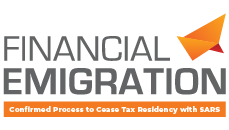SARS Issues Audit Requests Upon Ceasing Tax Residency
There is an alarming number of South African expatriates relying on the ‘tick-box’ approach to cease their tax residency. Alternatively, others assume that they are no longer tax residents because they reside outside South Africa or do not maintain assets in South Africa. These misconceptions flow from the shady advice that expatriates continue to receive….





